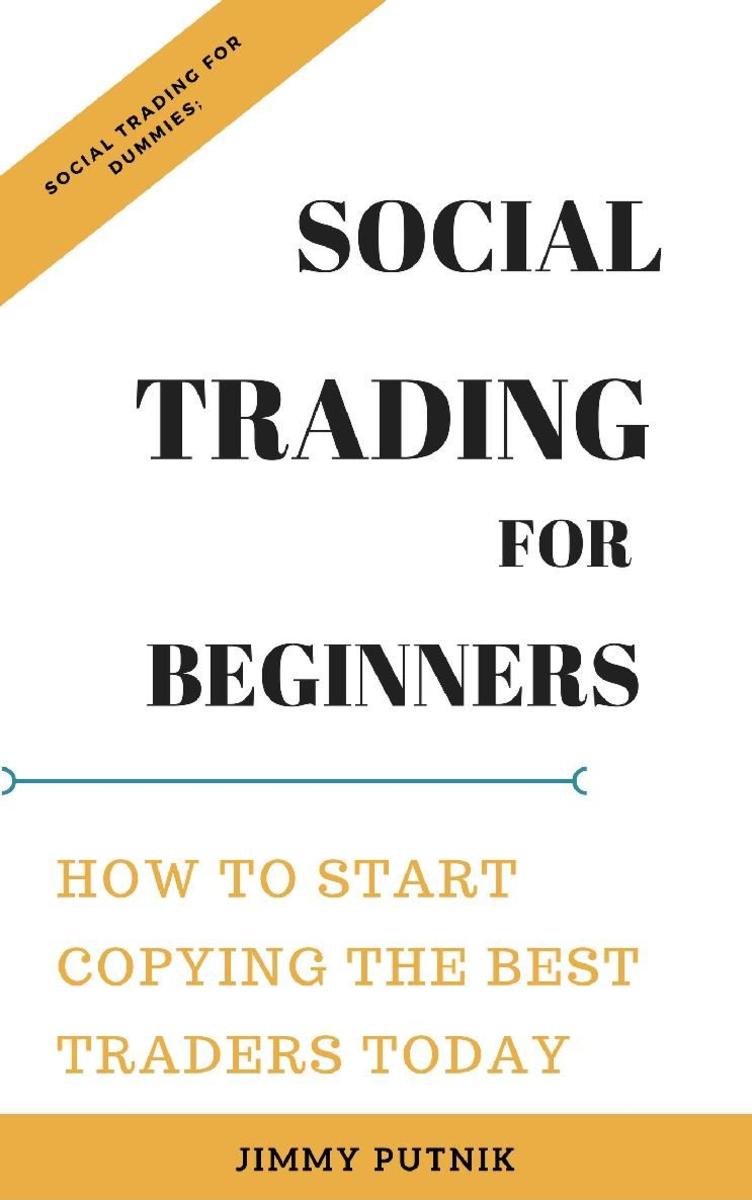
Social Trading For Beginners
¥16.35
social trading has grown by over 150% in the past two years with sites like eToro gaining over 2 million users. Y You can join in today and start making money just like the pros with no learning. In this guide book we will go though: - ·The best social trading platforms·How to choose a social trading platform·How to create your investors profile·How to choose the best traders: - This is an interactive guide book designed for all social trading beginners, you will also learn other aspects like ·managing your portfolio·how to deal with losing traders get your copy of social trading for dummies and learn how the end of day trading as we know it has come.
![Borsada Kuramlar ve Kurallar: [A??klamal? ve Diyagramlarla]](https://platform-permanent.ddimg.cn/pt-media-info-soa-resource/digital/product/53/5/1901165305_ii_cover.jpg?version=1d738c1a-1194-4a3b-8257-c4fb56da3fb6)
Borsada Kuramlar ve Kurallar: [A??klamal? ve Diyagramlarla]
¥36.95
Victor Niederhoffer ve Laurel Kenner'in Pratik Spekülasyon (Practical Speculation) adl? kitab?nda, bal??a ??kma zaman? konusunda ?aka ile kar???k baz? ger?ek?i de?erlendirmeler yap?lm??. Bunlar, yorumlar?mla a?a??da: a) Bal?klar?n yemlenmesi s?ras?nda mutlaka g?lde olun. ?rne?in, para arz? bir nedenle art?yorsa, bundan do?rudan etkilenecek hisse senedi gibi enstrümanlara yat?r?m yap?n. Yabanc?lar girmeye ba?lam??larsa, siz de borsada al?m yapmaya ba?lay?n. b) G?lde gere?inden fazla bal?k?? varsa, siz bal??a ??kmay?n. Bu, kalabal?k bir bi?imde sizin b?lgenizdeki bal?klar? da ürkütecektir. Herkes ayn? hisse senedine veya yat?r?m alan?na yat?r?m yapmaya ba?lam??sa o yat?r?mda iyi k?r kalmam?? demektir. c) Ava iyi haz?rlan?n. Kullanaca??n?z malzemeler iyi haz?rlanm?? ve yeterli olsun. Bal?k tutma i?i, biraz da sab?r i?idir. Bazen k?r, zaman i?inde elde edilir. Ne zaman, hangi enstrümana ve nas?l yat?r?m yapaca??n?z? ?nceden haz?rlay?n. Hislerinize kulak verin. d) Sessiz olun. Gürültü, bal?klar? ka??r?r. Fikirlerinizi ve piyasada mevcut f?rsat olas?l??? konusundaki bilginizi, ba?kalar?yla payla?may?n. e) Bal?k olmad??? bilinen b?lgede avlanmaya kalkmay?n. G?lün altyap?s?n? ve avlayaca??n?z bal???n davran?? bi?imlerini iyi ??renin. Elektronik olarak bal?klar?n yerini g?steren aletler iyidir, ama onlar?n oltalar? yoktur. Hi? kimsenin al?m yapmad??? yerde, sizin al?ma ba?laman?z zamans?z olabilir. ?te yandan, hisselerin veya di?er yat?r?m ara?lar?n?n yükselece?i veya dü?ece?i y?nünde yap?lan matematiksel tahminler, birer bilgidir, ama bal?k yakalama, bilginin, ?ans?n ve hissetmenin bir kar???m?d?r. f) Bütün haz?rl?klar?n?z tamam olsa bile bazen bal?k, zokay? yutmaz. Cesaretinizi k?rmay?n. ?yi zaman ge?irdi?inizi dü?ünün. Bu i?i en iyi bilenlerin bile, istatistiksel olarak sadece % 60 ba?ar?l? olduklar? ger?e?ini unutmay?n. g) Bazen, bal?k tutmak de?il, bal?klar? beslemek zorunda kalabilirsiniz. G?lün avlanmaya haz?r olmas? i?in bu gerekli olabilir. Fiyatlar yükselmeye ba?lay?nca siz de trende uyun. Yükselme trendine giren piyasa, iyi al?m zaman? demektir. h) Bazen büyük bal?klar, oltan?zdaki yemi ?alarlar. Bu durumda oltan?za yeni yem tak?p bal?k vurmas?n? ?ok dikkatle takip edin. Büyük oyunculara ?abuk teslim olmay?n. Büyükler, piyasaya bir ara hakim olsalar da piyasadan ?ekilecekleri bir zaman vard?r. O zaman? kollay?n. i) Karaya ne zaman d?nece?inizi iyi hesaplay?n. G?lde f?rt?naya yakalanmay?n. Piyasan?n dü?me sinyallerini iyi g?rün. Zaman?nda elinizdekileri sat?p nakde d?nün. [Tarkan ?zhan, 1969-] ??REN?M DURUMU: Trakya üniversitesi B?lüm: Fen Fakultesi Kimyager MESLE??: Borsac?, Trader, Portfoy Y?netimi Aktif ?al??ma süresi; 25 y?l

The Marriage Contract by Honoré de Balzac - Delphi Classics (Illustrated)
¥8.09
This eBook features the unabridged text of ‘The Marriage Contract by Honoré de Balzac - Delphi Classics (Illustrated)’ from the bestselling edition of ‘The Collected Works of Honoré de Balzac’. Having established their name as the leading publisher of classic literature and art, Delphi Classics produce publications that are individually crafted with superior formatting, while introducing many rare texts for the first time in digital print. The Delphi Classics edition of Balzac includes original annotations and illustrations relating to the life and works of the author, as well as individual tables of contents, allowing you to navigate eBooks quickly and easily. eBook features: * The complete unabridged text of ‘The Marriage Contract by Honoré de Balzac - Delphi Classics (Illustrated)’ * Beautifully illustrated with images related to Balzac’s works * Individual contents table, allowing easy navigation around the eBook * Excellent formatting of the text Please visit www.delphiclassics.com to learn more about our wide range of titles

Maps of the Soul
¥90.84
Othman al-Sheikh is running away from the shadows of his past life in a small dusty village in the Libyan Desert. Tripoli, meanwhile, is a city in the process of transformation, moulded to the will of its Italian colonisers. Its decadent entertainments and extravagant riches conceal an underbelly of abject poverty and ruthless plotting. Othman falls for the city and its temptations. With a natural instinct for survival, he tries his luck in the capital, swept along by chance and opportunity.
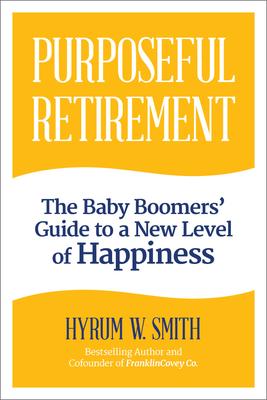
Purposeful Retirement:How to Bring Happiness and Meaning to Your Retirement
¥77.31
Retirement and good living Are you getting ready to simplify life and move from the world of work to a life of retirement and good living ─ to enter a happy retirement? Retirement and good living: The author of Purposeful Retirement, Hyrum W. Smith, is one of the original creators of the popular Franklin Day Planner, the former Chairman and CEO of Franklin Covey Co., and the recognized “Father of Time Management”. In this book, Hyram shows you how you can move from your world of work, simplify life and enter what can be the most satisfying phase of your life ─ a new world of purposeful retirement and good living. Aging well and a happy retirement: You have had a successful career by almost all measures and now you are concerned about aging well and looking toward a happy retirement. You are definitely not a couch potato. ·How are you going to create a retirement that is meaningful and inspiring for your second act? ·Can you simplify life? ·Is there a way to make intelligent and anxiety free retirement planning choices? ·Can you learn from the lives and experiences of people who have found their pathway to happy retirement? ·What are their secrets to aging well and a happy retirement? Retirement guide: For four decades, Hyrum W. Smith has been empowering people to effectively govern their personal and professional lives. An award winning author, distinguished speaker, and successful businessman, Hyrum offers a tested and actionable retirement guide to finding that perfect retirement niche. In his book, Hyrum enables you to map the step-by-step route to a retirement that is not just enjoyable but is also deeply fulfilling on a personal level. Welcome to your new life of retirement and good living: This distinguished author, speaker, and businessman combines wit and enthusiasm with a gift for communicating compelling principles that inspire lasting personal change. Hyrum shares a lifetime of wisdom in this powerful retirement guide to discovering your true passion, re-imagining your life, and trying new possibilities. Welcome to a new life of retirement and good living ─ to a purposeful retirement.
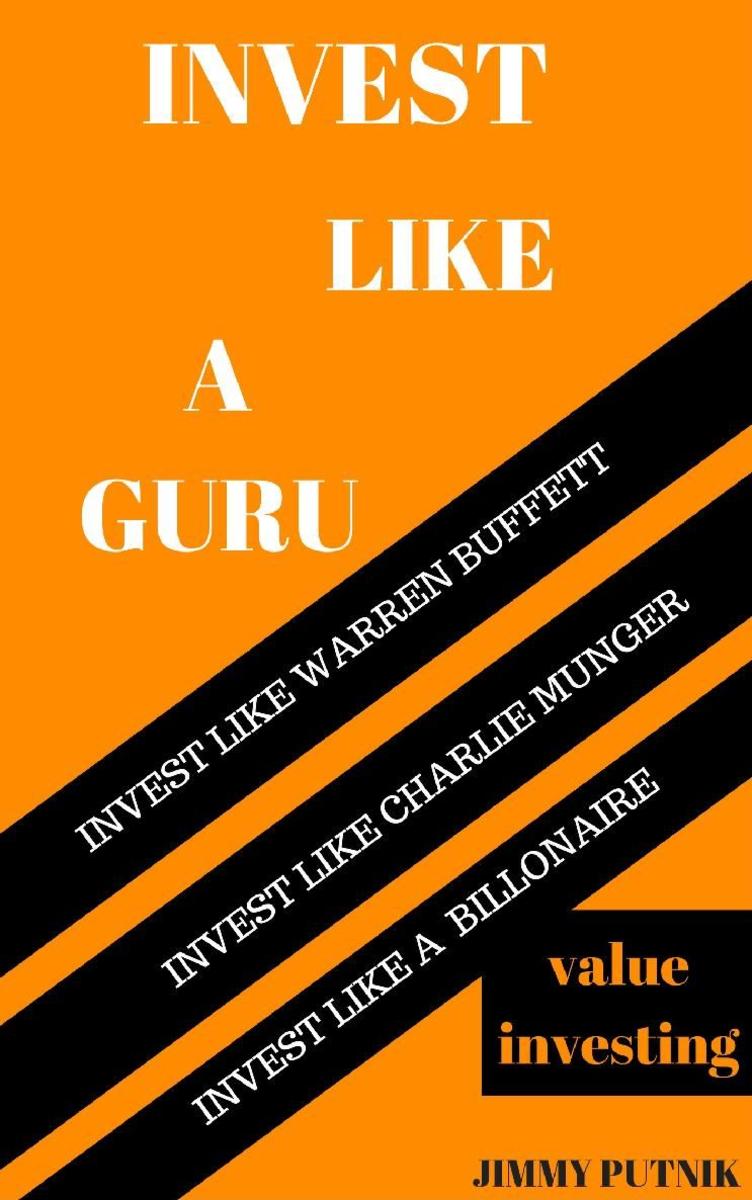
Invest Like A Guru:Introduction To Value Investing
¥73.49
Investing like a guru is a detailed investment introduction book on value investing. The concept that is used by Warren Buffet, Charlie Munger and other billionaire Investors all through history. ?

Konzílium az ?serd?ben
¥58.29
Mi leszek, ha nagy vagyok?Németh Márton ezt a kérdést tette fel magának huszonhét évesen, amikor már b?ven túl volt a pályakezdésen, elindult a karriere, és minden úgy alakult, ahogy a nagy k?nyvben meg van írva. Mégsem volt elégedett, valami hiányzott. Egyik napról a másikra d?bbent rá, hogy mennyire nem azon az úton halad, amin szeretne: olyan alkalmazott, aki kevésért dolgozik sokat, mások jólétét gyarapítja, nem a saját érdekeit tartja szem el?tt.Vajon egyedül ? a felel?s azért, hogy így alakult? Feln?tt egyáltalán? Tud még változtatni? Az ?szinte válaszokért – még ha fájnak is – lelke legmélyére kellett leásnia, hogy megtalálja igazi ?nmagát.A szerz? a saját életén keresztül mutatja be a mai magyar pályakezdés nehézségeit, buktatóit, valamint az alkalmazotti státuszból, a karrierlétra aljáról való felt?rést. A fiatalok sok információt hallhatnak arról, hogyan kéne egyr?l a kett?re jutni, azonban azt senki nem mondta el nekik, hogyan is lépjenek nulláról az egyre. Eddig.
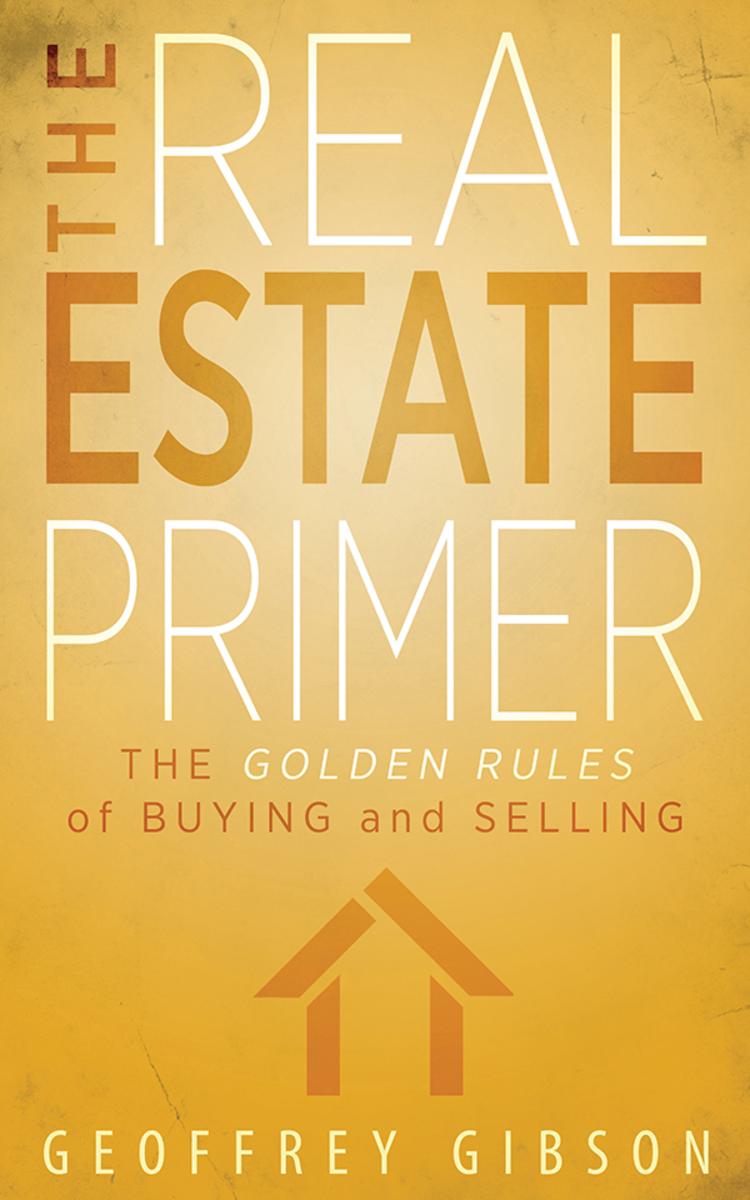
The Real Estate Primer:The Golden Rules of Buying and Selling
¥32.62
You would not set out to climb Everest without the right training and equipment. Same with real estate, do not even start unless you know what you are doing. This book can be your guide, it is the result of thirty years in a very competitive real estate market. Let the author walk you through the marketplace in this easy step-by-step guide. This will help you achieve your real estate goals and save your hard earned money. Learn how to: ·Set up your search. ·Assess value. ·Understand the golden rule of real estate. ·Overcome the hurdle of price. ·Read the real estate market. ·Negotiate to buy or sell. ·Auctions. ·Successfully invest. Geoffrey Gibson spent thirty years in the highly competitive real estate market of Sydney's Lower North Shore. He has sold some of Sydney's finest homes, and was also known for his marketing of the area's commercial, retail and industrial property. Learn more at www.GeoffreyGibson.com Business & Economics : Real Estate - Buying & Selling Homes

Erelem: eszetlen szerelem
¥48.97
Vannak ügyfelei??Vev?i??Vásárlói??Akkor erre a k?nyvre szüksége van!?A Királyok vagy zsarnokok? ?gyfélpanasz 2.0 cím? k?nyv??sszefoglalja az ügyfélpanaszok kezelésének jó gyakorlatát. Jellegzetes esetpéldákon keresztül dolgozza fel az ügyfélpanasz kezelés buktatóit, bemutatja a legfontosabb kutatásokat is.? Egy k?nyv a vev?visszajelzések fontosságáról és a panaszkezelésr?l.?Amit megtudhat a Királyok vagy zsarnokok? ?cím? k?nyvb?l: Miért olyan fontosak a vásárlók d?ntéseiben a korábbi vásárlók visszajelzései? Tényleg mindig a vev?nek van igaza? Hogyan lesz kommunikációs krízishelyzet egyetlen ügyfélpanaszból? Mit tanulhatsz meg mások hibáiból, nevezetes ügyfélpanaszokból? Hogyan használható a szájreklám és a social listening a panaszkezelésben? Mire jók az ügyfélszolgálati chatbotok? Hogyan segít a mesterséges intelligencia a panaszkezelésben? Mi a social media ügyfélszolgálat? A k?nyv szerz?je Vas Dóra, kríziskommunikációs szaktanácsadó, online kommunikációs szakember.

Сооружаем уютную беседку, веранду, террасу
¥8.83
Б?знес-гуру, ?нвестор Кремн??во? долини, американський п?дпри?мець Бен Горов?ц написав в?дверту книгу про б?знес, не под?бну до сотн? видань штибу ?Як створити власну справу ? досягнути усп?ху?. ??Автор не пропону? готових рецепт?в усп?ху й аргументовано поясню?, чому таких рецепт?в не ?сну?. Горов?ц розпов?да?, що в б?знес?, як ? в житт?, передус?м потр?бно розмежовувати сво? сприйняття ? факти, особисте та профес?йне, ? тод? нав?ть р?шення зв?льнити кращого товариша н? для кого не стане катастрофою. Нав?ть якщо п?д вашим кер?вництвом працю? найталановит?ший прац?вник, який здобув визнання у профес?йних колах, саме ви вир?шу?те, чи потр?бен його нестерпний характер ? великий талант ваш?й компан??.??Увесь св?й досв?д керування людьми, боротьбу з ?хн?ми ?нтригами, пошуки найкращих фах?вц?в Бен Горов?ц пода? як ?нструкц?ю до д??, зрозум?лу кожному. Б?знес-д?йсн?сть — нещадна, наче життя у гетто, про яке сп?вають часто цитован? автором репери. А ваш? шанси виграти дор?внюють шансам програти. Тому ця книга не для тих, хто шука? легких в?дпов?дей, а для тих, хто зна?: запитань завжди б?льше, н?ж в?дпов?дей, а перемагають у б?знес? т?льки найв?дважн?ш?.??

The Bitcoin Genesis
¥57.14
Unlike normal (fiat) currencies, bitcoin doesn’t have a central bank or a backing of a national government. Instead, it is regulated by complex algorithms with new coins being mined when computers solve complex equations. All this number crunching is tracked by the blockchain, a public ledger of all transactions which is distributed meaning there is no central point of the network that can be shut down. It’s perhaps analogate to file sharing protocol Bittorrent. You can obtain bitcoin by mining them yourself of buying them from an exchange but for that to happen you will first need a wallet. There are different ways to get a wallet, you can simply store yourself on your hard disk in wallet software running locally or you can use online service and have your coins stored in a cloud. Both have advantages and disadvantages. E.g. if your coins were stored locally, if something was to happen to your computer such as your hard disk getting destroyed you lose your cash. Conversely, if your coins are stored online in an exchange there are more likely to attract hackers. Famously in 2015, Mt. Gox, which was one of the largest bitcoin exchanges was hacked resulting in the virtual highest of 450,000 bitcoins with wooden valued at about 450 million dollars. While some coins have since been recovered, a large number are still missing due to the way the bitcoin protocol works, it's simply wasn't possible to hit the undo button. So, choose your wallet wisely.

Blockchain Technology and DevOps
¥30.88
Blockchain Technology & DevOps BundleBook 1- Blockchain Technology: Introduction and its impact on Business EcosystemBLOCKCHAIN TECHNOLOGY BEYOND BITCOIN INVESTING……(Free Blockchain Booklet Inside- Resources for further study)Larry Summers (US Former Treasury Secretary) once exclaimed,” 40 years from now, Blockchain and all that followed from it will figure more prominently in that story than will Bitcoin.”This is the essence of my interest and research in Blockchain Technology. Most of the discussions or information is about Bitcoin investing and its implications on Fintech sector. But what if you have more in-depth curiosity like:- How would Blockchain Technology impact the day to day lives of common people?- How could the government leverage the Blockchain Technology to improve the service delivery?- How would the existing businesses be impacted and integrated with this new Technology?- How the current Businesses and Jobs would be transformed?- What are the other sectors where this Technology have been Implemented?The answer to these questions would pave the way for your future research of the topic. It would also help you to stay ahead of the race by learning the relevant applications of Blockchain Technology. My book is an attempt to understand and look Blockchain Technology beyond investing!Book 2- DevOps Handbook: Introduction and its impact on Business Ecosystem“It is not the strongest of the species that survive, nor the most intelligent, but the one most responsive to change.”- Charles DarwinAs the industry is moving towards maximum digitization there is a consensus that DevOps practices help you deliver software faster, more reliable, and with fewer errors.DevOps is set of practices and cultural values that have been proven to help organizations of all sizes improve their software release cycles, software quality, security, and ability to get rapid feedback on product development.This book is aimed at Consultant, Project Manager and people from techno-commercial profiles who would be explaining the benefits of DevOps to the client, internal leadership or project teams. As the crux of DevOps methodology lies in the cultural transformation of the organization, people who are stakeholders in shaping this change must understand the overall alignment of business goals with this methodology.You would get to explore:? ·What is DevOps·Relationship between Agile, Scrum, Kanban and DevOps·DevOps Adoption: Organizational cultural Change ·Emerging Trends·DevOps success stories In the Free Booklet you will find out: ·DevOps Job Market overview (No. of jobs, Mean salary etc.)·Insights into DevOps job application·People to follow the latest development

Credit Repair Secrets Will Fix Your Credit
¥40.79
Repair Your Credit Score Without Stress or Panic Manage Your Credit in Only 10 Minutes Each Month! ? What if you could drastically improve your credit score? ? Imagine a great credit score that opens you to impressive financial opportunities… ? How would your life be different with an extra $500 or $1000 each month… ? Credit score enthusiast Casey Boon shows why credit has become so important in today’s culture.? She lays out a plan that she used to successfully correct her own past credit difficulties “It is easy to fall into credit problems, the trick is to right them ASAP. There is life after debt”. ? In this book you will learn: ? ·Why credit problems creep up on you. ·How to end procrastination. ·How to reduce stress by facing credit issues guilt free. ·How to end your debt SOON. ·How to save money with the DIY approach. ·How to save time for family. ·How you are the captain of your ship. ? Buy this book today and repair your credit score without stress or panic! ? Pick up this book today by clicking the BUY BUTTON at the top of this page!

New Totally Awesome Business Book for Kids
¥67.12
This first-of-its-kind book for young entrepreneurs is now completely revised and updated for a new generation by one of the original authors (now an adult) and his 14-year-old sister.Originally written by Arthur Bochner when he was just 13 with his mom, financial planner Adriane G. Berg, this was the first book to take kids step-by-step through the process of starting their own businesses. Now 24 and a successful political speechwriter, Arthur teams up with his kid sister, Rose, on a completely revised, updated edition to the basics of becoming an entrepreneur, offered in a smart, entertaining style just right for kids age 8-14.This fun and fact-filled volume includes: Cartoons, quizzes, games, and stories about starting up a business and making money from it How to use eBay and other Internet resources Ideas for donating to nonprofits and helping the environment. De*ions of 20 super businesses to start right now (such as lemonade stands, lawn mowing, garage sales) Ten basic business skills kids need to know: Speaking up for what you want; Business budgets; Record keeping, research, and filing; Telephoning; Negotiating; Putting it in writing; Marketing, advertising, and publicity; Networking; Working with others, even parents.

Brand Strategy and Management for Law Firms
¥2452.50
An effective brand strategy that is clearly understood and supported throughout your firm is crucial if you want to attract and retain profitable clients and sustain a talented workforce. Managing Partner’s Brand Strategy and Management for Law Firms report provides a comprehensive framework and guidelines for developing a brand strategy tailored to your firm. Packed with key concepts, practical tools, tips and advice this report will give you an understanding of brand and how it can be developed and strengthened as your firm’s most invaluable asset. Specifically, this report will help you to: Understand the key elements of personal brands, firm brand, and the employment brand – and how they relate to each other; Align your brand strategy with your overall firm strategy, vision and values; Realise the importance of brand names, icons or logos, design and aesthetics; · Understand the key brand considerations when using online channels – websites, blogs, LinkedIn, Twitter and Facebook; · Create a customised brand stress-test and make improvements to strengthen your firm’s brand accordingly and ensure its success; · Get partners and staff on board to support and grow your brand; and · Avoid brand mistakes and overcome the common challenges – including recommended steps for managing your brand before, during and following a merger. · Brand Strategy and Management for Law Firms features insightful case studies, examples and expert contributions from the likes of Norton Rose South Africa, DLA Phillips Fox, Lex Mundi, Lex Africa and more… They reveal practical tips, lessons learned and mistakes made that will prove invaluable in the development and management of your own brand strategy.
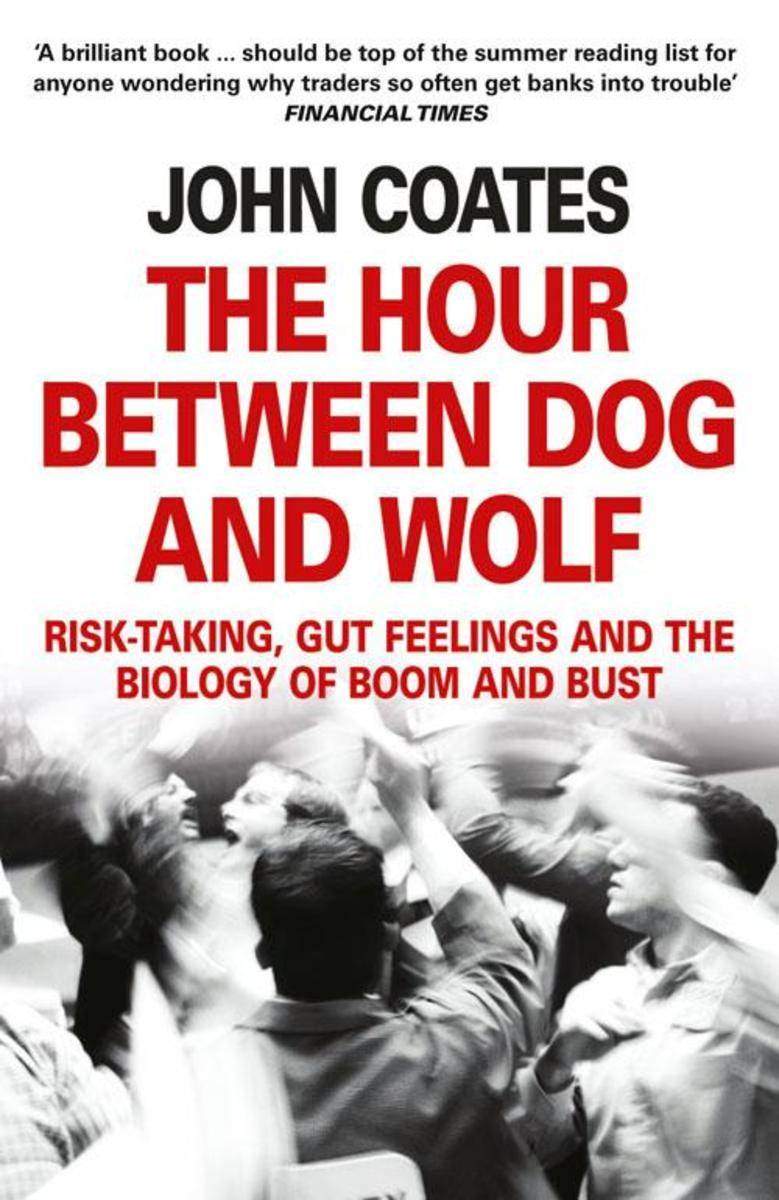
The Hour Between Dog and Wolf: Risk-taking, Gut Feelings and the Biology of Boom
¥73.58
As scandal and the aftershocks of the crash rock the financial world, former Wall Street trader John Coates investigates why our financiers are driven to take risks. Now shortlisted for the 2012 Financial Times and Goldman Sachs Business Book of the Year Award and the Wellcome Trust Book Prize, this startling and unconventional book sees neuroscientist and former Wall Street trader John Coates explain something we have long suspected: that we think with our body as well as our brain. And this only intensifies when we take risks; at work, in sport and on the financial markets. Making and losing money provokes an overwhelming biological response, and this can alter the way we behave. Could this bodily turmoil lead to the kind of irrational behaviour that so regularly upsets the global economy? In a series of groundbreaking experiments, Coates has shown that under the pressure of risk our biology transforms us into different people. Traders and investors are especially prone, becoming revved-up and testosterone-driven when on a winning streak, and tentative and risk-averse when cowering from losses. Revealing the biology of bubbles and crashes, The Hour Between Dog and Wolf sheds new and surprising light on issues that affect us all.
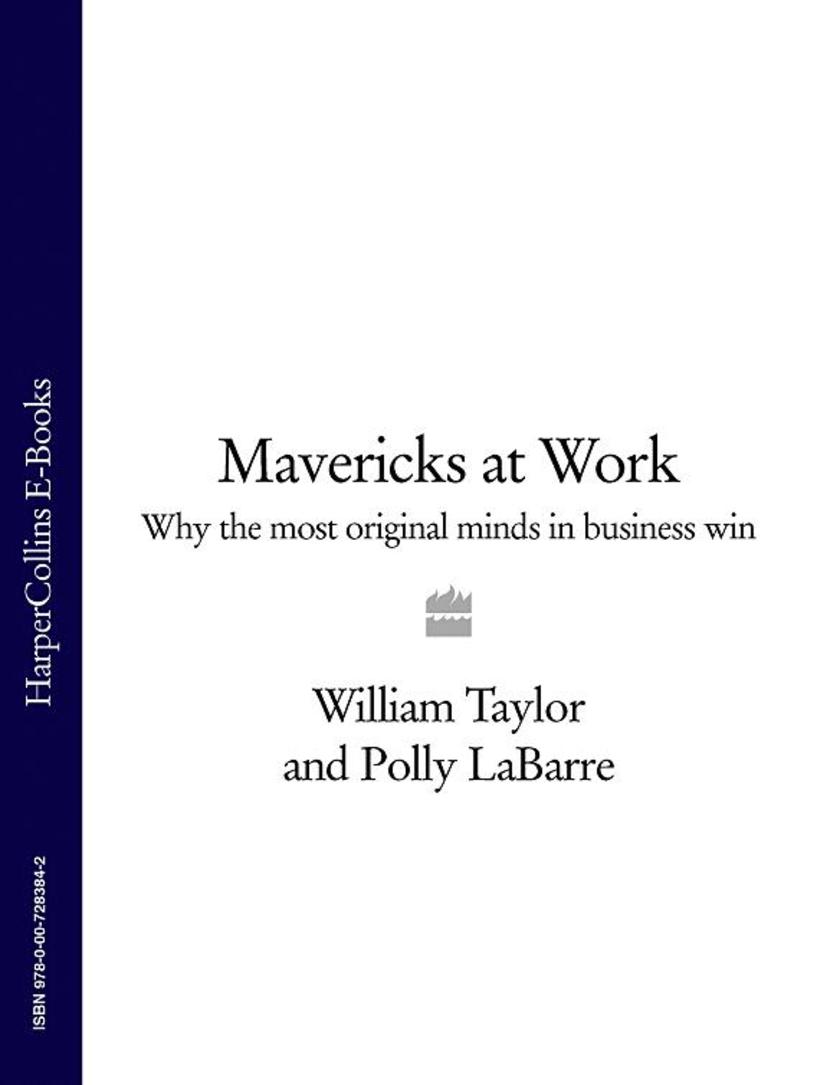
Mavericks at Work: Why the most original minds in business win
¥91.23
An engaging and incisive look at today's top business leaders – visionary and creative mavericks who are changing the way we do business. Inspiring and accessible, ‘Mavericks at Work’ is for anyone who wants to succeed in business – from the entry-level employee to the CEO. In ‘Mavericks at Work’, two high-profile journalists introduce an inspiring group of entrepreneurs and executives who are building great businesses by challenging business as usual. From break-the-mould innovators such as HBO, Pixar, and Netflix to global giants such as IBM and Procter & Gamble, these mavericks are winning big by devising new answers to the oldest (and toughest) challenges of competition and leadership. Their stories are exciting – and their ideas are truly powerful. Real mavericks know that: ? Big, original ideas pay big dividends ? Being different makes all the difference ? Nobody is as smart as everybody ? Cheaper is better, but value is priceless ? Great leaders are insatiable learners ‘Mavericks at Work’ is a relentlessly useful how-to book. But it is also an eye-opening what-if book – with insights that showcase the power of business at its best and set a positive agenda for the future.

The Way of Nowhere: Eight Questions to Release Our Creative Potential
¥117.82
The Way of Nowhere is a business book by the UK’s hottest change management consultancy who have led transformations in some of Britain’s biggest and best known organisations. An invaluable resource for anyone who wants to make a creative difference in their lives and the lives of people around them. Inspired by the unique practice of 'nowhere', a community of companies that specialise in co-creation, this is an inspirational book that will help you break through to a more creative and strategic future Renowned for their world-class approach to innovation, the nowhere group works with a wide range of businesses, government agencies and individuals to develop their creativity to its full potential. Now, their book maps out the groundbreaking ways that anyone can become more productive, playing a more creative role in your organisation while simultaneously nurturing your own growth along the way. It contains eight breakthrough questions designed to stimulate and enrich our creative capacity, both as an individual and as part of a team. Using examples and tools from their work with some of the UK’s largest and best known businesses, The Way of Nowhere shows us how to unlock the underlying and invisible forces at play within organisations, communities and cultures. With practice, you will discover how these questions and insights can release the latent creativity that exists within - a place where magic can happen - out of nowhere!

Career GPS
¥84.16
The workplace is constantly in flux, and even now there are new opportunities open to women. But to take advantage of these possibilities, it's essential to know the current rules for corporate success. This isn't your father's or your mother's workplace anymore! Whether it's the CEO seat, an executive manager slot, or a more intrapreneurial position, women who follow Career GPS will have what it takes to gain their professional goals.Dr. Ella L. J. Edmondson Bell, Ph.D., an authority on career development, has worked with women across a variety of fields and in different kinds of corporations, from Fortune 500s to start-ups. Here she offers guidelines to help women forge their own pathways to professional ascent, providing tips for maximizing a review, networking in a relevant way, and much more. According to Dr. Bell: Think working hard is enough to be recognizedIt's not enough to assume your effort will speak for itself. You have to socialize with the decision makers. It might not mean you have to pick up the golf clubs, but you do have to figure out what works in your own organization. Parlez-vous Fran?isLearning MandarinIf you work for a global company and aspire to an extreme job or higher, make it known that you would take an overseas assignment to advance your career. Nowhere to go right nowEven in hard times there are options. Learn a lateral skill such as accounting so when the company is firing on all engines again, you will impress through the breadth of your knowledge. Drawing from her work as a consultant to some of the country's most prestigious Fortune 100 companies, Dr. Bell helps readers succeed at every level in a dynamic corporate marketplace. Career GPS combines Dr. Bell's academic knowledge and expertise with dozens of heartfelt first-person stories from smart women who rose through the ranks. Here is a book that will guide women of all cultures, ages, and levels of experience to their career goals.

Resistance to Innovation
¥370.82
Every year, about 25,000 new products are introduced in the United States. Most of these products fail-at considerable expense to the companies that produce them. Such failures are typically thought to result from consumers' resistance to innovation, but marketers have tended to focus instead on consumers who show little resistance, despite these "e;early adopters"e; comprising only 20 percent of the consumer population.Shaul Oreg and Jacob Goldenberg bring the insights of marketing and organizational behavior to bear on the attitudes and behaviors of the remaining 80 percent who resist innovation. The authors identify two competing definitions of resistance: In marketing, resistance denotes a reluctance to adopt a worthy new product, or one that offers a clear benefit and carries little or no risk. In the field of organizational behavior, employees are defined as resistant if they are unwilling to implement changes regardless of the reasons behind their reluctance. Seeking to clarify the act of rejecting a new product from the reasons-rational or not-consumers may have for doing so, Oreg and Goldenberg propose a more coherent definition of resistance less encumbered by subjective, context-specific factors and personality traits. The application of this tighter definition makes it possible to disentangle resistance from its sources and ultimately offers a richer understanding of consumers' underlying motivations. This important research is made clear through the use of many real-life examples.

The Upside of Irrationality
¥94.10
The provocative follow-up to the New York Times bestseller Predictably Irrational Why can large bonuses make CEOs less productiveHow can confusing directions actually help usWhy is revenge so important to usWhy is there such a big difference between what we think will make us happy and what really makes us happyIn his groundbreaking book Predictably Irrational , social scientist Dan Ariely revealed the multiple biases that lead us into making unwise decisions. Now, in The Upside of Irrationality , he exposes the surprising negative and positive effects irrationality can have on our lives. Focusing on our behaviors at work and in relationships, he offers new insights and eye-opening truths about what really motivates us on the job, how one unwise action can become a long-term habit, how we learn to love the ones we're with, and more. Drawing on the same experimental methods that made Predictably Irrational one of the most talked-about bestsellers of the past few years, Ariely uses data from his own original and entertaining experiments to draw arresting conclusions about how and why we behave the way we do. From our office attitudes, to our romantic relationships, to our search for purpose in life, Ariely explains how to break through our negative patterns of thought and behavior to make better decisions. The Upside of Irrationality will change the way we see ourselves at work and at home and cast our irrational behaviors in a more nuanced light.




 购物车
购物车 个人中心
个人中心



